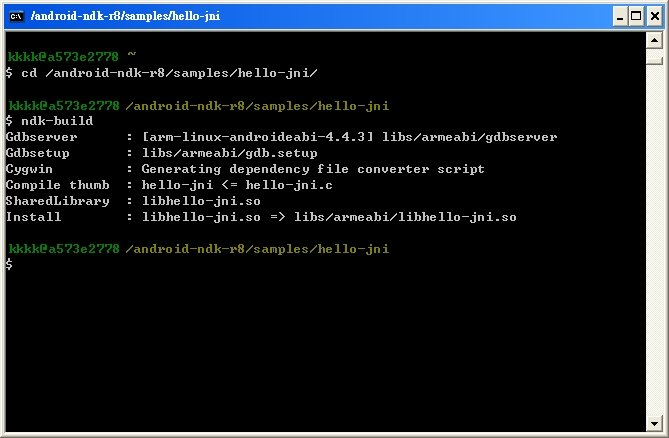Java Software Development Kit For Mac
Jan 03, 2018 Java Development Kit (JDK) The straight forward way to get a JDK onto a Mac is a download from Oracle followed by the guided setup using the installer. While this method might be sufficient for some simple cases, it lacks the flexibility developers need.
- Jul 14, 2019 Download Java SE Development Kit 7 1.7 for Mac from our website for free. Our antivirus analysis shows that this Mac download is malware free. The actual developer of this free Mac application is Oracle Corporation. The software is included in Developer Tools.
- The Java Development Kit (JDK) is an implementation of either one of the Java Platform, Standard Edition, Java Platform, Enterprise Edition, or Java Platform, Micro Edition platforms released by Oracle Corporation in the form of a binary product aimed at Java developers on Solaris, Linux, macOS or Windows.The JDK includes a private JVM and a few other resources to finish the development of a.

JDK is the development tool software application. It stands for Java Development Kit. It is developed by Oracle Corporation. Also, It is under the Sun License and also the General Public License. So it is free to use by anyone to download and install for any purpose. The source code is also open and available to the software is freeware. It supports Solaris, Windows, Mac OS, and Linux. The latest version of JDK is released on 17 October 2017 that is JDK 9.0.1. It is also known as the software development environment. This contains the bundle of software components.
Some of the major components of the software development environment are JRE stands for Java Runtime Environment, Java that runs, interpret the code, JavaC that is java compiler, development tools, libraries, and JVM that means Java virtual machine. The main purpose of JDK is required and to help the java programs on the computer system. Workflow example of JDK is a simple source code sample.java it will send to the Java compiler that is JavaC will compile and convert it into the Java bytecode and make another file like sample.class. This sample file will then send to the JVM this will execute the program.
Features
- It has introduced the new method that is for each loop, which was not present before in java.
- Default and static keywords are used that implements the ForEach() method, So multiple interfaces are created.
- Functional interfaces are newly introduced in Java 8.
- The java stream API is introduced that supports bulk data operations.
- We know in java the data, time, and the calendar was difficult to work in Java, So the Java 8 introduces the new Time and Date functions.
- The new update has improved API’s overall.
- The Jave input and output are improved.
- It improves the performance, has more storage in a list, arrays, etc.
- It improves the security of the application, privileges, and other parameters.
- JDBC, Network, Hotspot, Java DB, Java XML, Date-Time, scripting, Deployment, all are improved and perform in a better way.
| Developer(s) | Oracle Corporation |
|---|---|
| Stable release | |
| Operating system | Windows NT, macOS, Linux, Solaris |
| Platform | IA-32, x64, ARM, SPARC |
| Type | Software development kit |
| License | Sun License (most of it also under GPL) |
| Website | www.oracle.com/technetwork/java/ |
The Java Development Kit (JDK) is an implementation of either one of the Java Platform, Standard Edition, Java Platform, Enterprise Edition, or Java Platform, Micro Edition platforms[1] released by Oracle Corporation in the form of a binary product aimed at Java developers on Solaris, Linux, macOS or Windows. The JDK includes a private JVM and a few other resources to finish the development of a Java application.[2] Since the introduction of the Java platform, it has been by far the most widely used Software Development Kit (SDK).[citation needed] On 17 November 2006, Sun announced that they would release it under the GNU General Public License (GPL), thus making it free software. This happened in large part on 8 May 2007, when Sun contributed the source code to the OpenJDK.[3]
JDK contents[edit]
The JDK has as its primary components a collection of programming tools, including:
- appletviewer – this tool can be used to run and debug Java applets without a web browser
- apt – the annotation-processing tool[4]
- extcheck – a utility that detects JAR file conflicts
- idlj – the IDL-to-Java compiler. This utility generates Java bindings from a given Java IDL file.
- jabswitch – the Java Access Bridge. Exposes assistive technologies on Microsoft Windows systems.
- java – the loader for Java applications. This tool is an interpreter and can interpret the class files generated by the javac compiler. Now a single launcher is used for both development and deployment. The old deployment launcher, jre, no longer comes with Sun JDK, and instead it has been replaced by this new java loader.
- javac – the Java compiler, which converts source code into Java bytecode
- javadoc – the documentation generator, which automatically generates documentation from source code comments
- jar – the archiver, which packages related class libraries into a single JAR file. This tool also helps manage JAR files.
- javafxpackager – tool to package and sign JavaFX applications
- jarsigner – the jar signing and verification tool
- javah – the C header and stub generator, used to write native methods
- javap – the class file disassembler
- javaws – the Java Web Start launcher for JNLP applications
- JConsole – Java Monitoring and Management Console
- jdb – the debugger
- jhat – Java Heap Analysis Tool (experimental)
- jinfo – This utility gets configuration information from a running Java process or crash dump. (experimental)
- jmap Oracle jmap - Memory Map– This utility outputs the memory map for Java and can print shared object memory maps or heap memory details of a given process or core dump. (experimental)
- jmc – Java Mission Control
- jpackage – a tool for generating self-contained application bundles. (experimental)
- jps – Java Virtual Machine Process Status Tool lists the instrumented HotSpot Java Virtual Machines (JVMs) on the target system. (experimental)
- jrunscript – Java command-line scriptshell.
- jshell - The new jshell introduced in java 9.
- jstack – utility that prints Java stack traces of Java threads (experimental)
- jstat – Java Virtual Machine statistics monitoring tool (experimental)
- jstatd – jstat daemon (experimental)
- keytool – tool for manipulating the keystore
- pack200 – JAR compression tool
- policytool – the policy creation and management tool, which can determine policy for a Java runtime, specifying which permissions are available for code from various sources.
- VisualVM – visual tool integrating several command-line JDK tools and lightweight[clarification needed] performance and memory profiling capabilities
- wsimport – generates portable JAX-WS artifacts for invoking a web service.
- xjc – Part of the Java API for XML Binding (JAXB) API. It accepts an XML schema and generates Java classes.
Experimental tools may not be available in future versions of the JDK.
The JDK also comes with a complete Java Runtime Environment, usually called a private runtime, due to the fact that it is separated from the 'regular' JRE and has extra contents. It consists of a Java Virtual Machine and all of the class libraries present in the production environment, as well as additional libraries only useful to developers, such as the internationalization libraries and the IDL libraries.
Copies of the JDK also include a wide selection of example programs demonstrating the use of almost all portions of the Java API.
Ambiguity between a JDK and an SDK[edit]
The JDK forms an extended subset of a software development kit (SDK). It includes 'tools for developing, debugging, and monitoring Java applications'.[5] Oracle strongly suggests to now use the term JDK to refer to the Java SE Development Kit. The Java SE SDK is available with or without the JDK, by which they specifically mean the Java SE 7 JDK.[6] Le watch open mac with appendectomy.
Other JDKs[edit]
In addition to the most widely used JDK discussed in this article, there are other JDKs commonly available for a variety of platforms, some of which started from the Sun JDK source and some that did not. All adhere to the basic Java specifications, but often differ in explicitly unspecified areas, such as garbage collection, compilation strategies, and optimization techniques. They include:
In development or in maintenance mode:
Jun 11, 2020 Top 5 best free antivirus for Mac in 2020 1. Avast Free Mac Security. Avast Free Mac Security goes the extra mile to protect your Mac with an unusually lengthy. Avira Free Antivirus for Mac. While many antivirus companies try to win you over by piling on the features, Avira. All of our antivirus for Mac reviews Sophos Home Premium for Mac Avast Premium Security Kaspersky Internet Security for Mac 2020 Avast Free Mac Security Avira Free Antivirus for Mac Norton Security Deluxe (Mac) Trend Micro Antivirus for Mac Airo Antivirus F-Secure Safe Malwarebytes Premium ESET.  The top paid options include Bitdefender Antivirus for Mac - 2020, $30, and Kaspersky Internet Security for Mac - 2020, $35. Download the software from trusted sites. If you click on a pop-up ad.
The top paid options include Bitdefender Antivirus for Mac - 2020, $30, and Kaspersky Internet Security for Mac - 2020, $35. Download the software from trusted sites. If you click on a pop-up ad.

Java Development On Mac
- Azul Systems Zing, low latency JDK for Linux;[7]
- Azul Systems / OpenJDK-based Zulu for Linux, Windows, Mac OS X, embedded and the cloud;[8]
- OpenJDK / IcedTea;
- AicasJamaicaVM;
- IBM J9 JDK, for AIX, Linux, Windows, MVS, OS/400, Pocket PC, z/OS;[9]
Not being maintained or discontinued:
- Apache Harmony;
- Apple's Mac OS Runtime for Java JVM/JDK for Classic Mac OS;[10]
- Blackdown Java – Port of Sun's JDK for Linux;[11][12]
- GNU's Classpath and GCJ (The GNU Compiler for Java);
- Oracle Corporation's JRockit JDK, for Windows, Linux, and Solaris;[13]
See also[edit]
References[edit]
- ^'Java SE 7 Features and Enhancements'. Oracle Corporation. Retrieved 1 January 2013.
- ^'OpenJDK homepage'. Oracle Corporation and/or its affiliates. Retrieved 1 January 2013.
- ^'Sun's May 8th announcement of source code for JDK'. Archived from the original on 12 September 2012. Retrieved 1 February 2020.
- ^'JDK 5.0 Java Annotation Processing Tool (APT)-related APIs & Developer Guides -- from Sun Microsystems'. Retrieved 5 August 2012.
- ^'Java SE Downloads'. Oracle. Retrieved 10 July 2013.
- ^'Java EE 7 SDK distributions require JDK 7''Java Platform, Enterprise Edition 7 SDK - Installation Instructions'. Installing the Software. Oracle. Retrieved 10 July 2013.
- ^'Azul Zing product page'.
- ^'Azul Zulu download page'.
- ^'developerWorks : IBM developer kits : Downloads'. Retrieved 5 August 2012.
- ^'Support at Apple'. Archived from the original on 13 December 2007.
- ^'Java Linux Contact Information'. Archived from the original on 7 August 2007. Retrieved 5 August 2012.
- ^'Java-Linux Latest Information'. Archived from the original on 19 October 1996. Retrieved 5 August 2012.
- ^'JRockit Family Download page'. Retrieved 5 August 2012.
External links[edit]
- GNU Classpath – a Free software JDK alternative[citation needed]